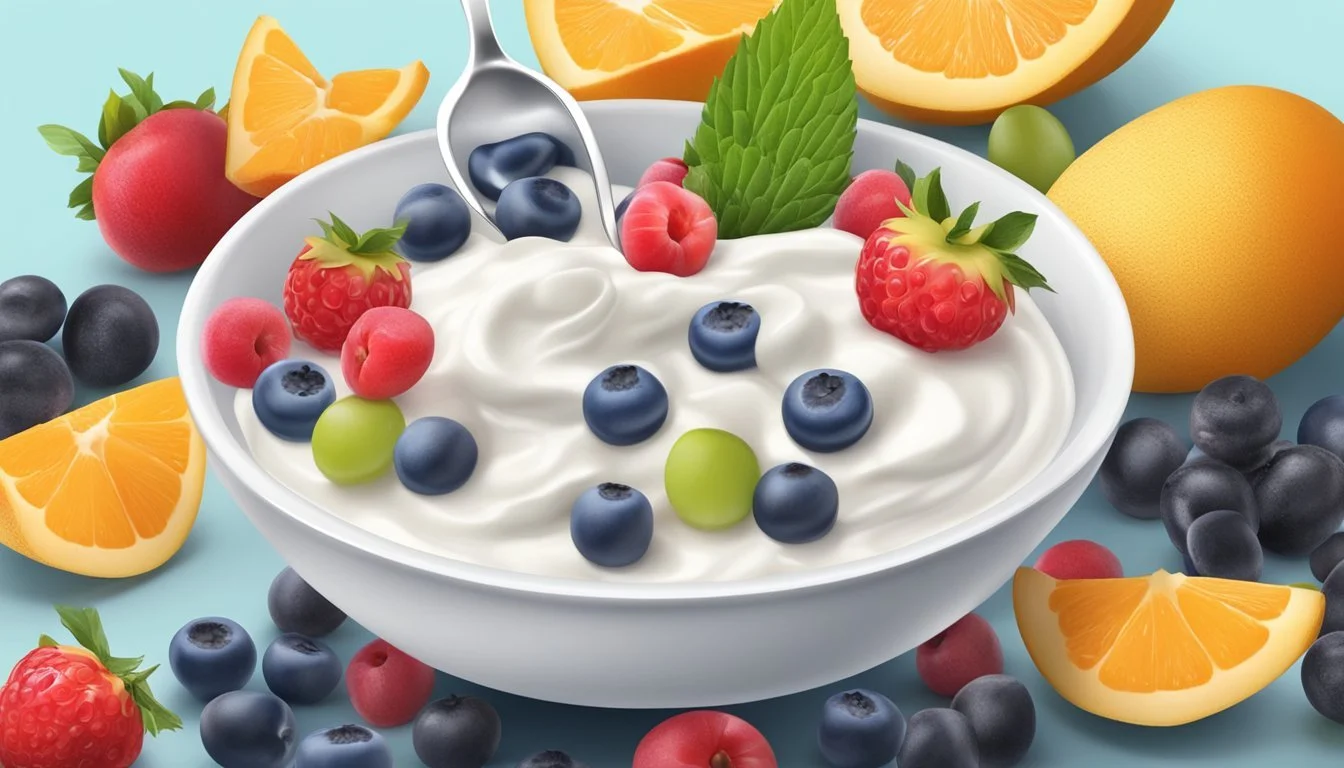10 Essential Foods Rich in Riboflavin (Vitamin B2)
Essential Sources for Riboflavin
Vitamin B2, also known as riboflavin, is an essential nutrient that plays a crucial role in maintaining overall health. It is involved in various metabolic processes, including the breakdown of carbohydrates, fats, and proteins to produce energy. This vitamin also acts as an antioxidant, helping to combat oxidative stress and protect cells from damage.
Incorporating foods high in vitamin B2 into your diet can significantly enhance your wellbeing. From supporting nerve function to promoting healthy skin and eyes, riboflavin is a versatile nutrient that should not be overlooked. Many commonly consumed foods are rich in this vitamin, making it accessible and easy to include in your daily meals.
1) Almonds
Almonds are an excellent source of riboflavin, providing essential nutrients for the body. They are also rich in other vitamins and minerals, including vitamin E, protein, and fiber. This makes them a nutritious choice for those looking to increase their vitamin B2 intake.
A single serving of almonds can contribute significantly to daily riboflavin needs. This makes them not only a healthy snack option but also a versatile ingredient in various dishes.
Moreover, almonds contain antioxidants, which help to protect the body from oxidative stress. These nutrients play a crucial role in maintaining overall health and well-being.
2) Cheese
Cheese is a notable source of Vitamin B2 (riboflavin). Among the various types, cheeses like Swiss, cheddar, and ricotta stand out with their riboflavin content. For instance, a serving of Swiss cheese contains approximately 0.108 mg of Vitamin B2, which is about 8% of the daily value.
Adding cheese to meals can contribute significantly to daily Vitamin B2 intake. This nutrient is essential for energy production and skin health. Additionally, cheese provides other vitamins and minerals such as calcium and Vitamin B12.
Despite its benefits, it's important to consume cheese in moderation due to its high fat and calorie content. Opting for low-fat or reduced-fat versions can be a healthier choice.
3) Eggs
Eggs are a versatile and nutritious food, offering a notable amount of riboflavin (Vitamin B2). This vitamin is essential for energy production and helps maintain healthy skin and eyes.
Two large eggs provide approximately 15% of the daily value for riboflavin. This makes them a valuable addition to any diet aimed at ensuring adequate intake of B vitamins.
In addition to riboflavin, eggs also contain other important nutrients such as protein, vitamin D, and choline. These nutrients contribute to overall health by supporting muscle function, bone health, and brain development.
Eggs can be easily incorporated into various meals. They are suitable for breakfast, lunch, or dinner in forms like scrambled, boiled, or as part of a dish. Their versatility makes it simple to enjoy the benefits of riboflavin regularly.
Free-range and organic eggs may offer higher nutritional value due to improved diets of the hens. It's often recommended to include eggs from these sources when possible.
4) Spinach
Spinach is a highly nutritious leafy green vegetable known for its rich vitamin and mineral content. Among these nutrients, vitamin B2, also known as riboflavin, stands out.
A single serving of spinach covers 11% of the daily recommended intake of vitamin B2. This makes spinach a useful addition to a diet aimed at boosting riboflavin levels.
Spinach's versatility means it can be incorporated into a variety of dishes, whether raw in salads or cooked in stews and soups. This flexibility helps individuals easily meet their vitamin B2 needs.
Moreover, spinach is not only high in riboflavin but also packed with other essential vitamins such as vitamin K1, carotenoids, and folate. This makes it a comprehensive choice for long-term health.
Fresh or frozen, spinach retains much of its nutritional value, making it an excellent year-round option for maintaining adequate vitamin B2 levels.
5) Mushrooms
Mushrooms are a powerful source of riboflavin, also known as vitamin B2. One cup of cooked white button mushrooms can provide around 36% of the daily value for this essential vitamin.
In addition to riboflavin, mushrooms offer a rich supply of other nutrients. They are an excellent source of vitamin B5, or pantothenic acid, which is crucial for energy metabolism.
Mushrooms are versatile in culinary applications. They can be added to soups, salads, stir-fries, and pasta dishes, making it easy to incorporate riboflavin into daily meals.
With their nutrient density and culinary adaptability, mushrooms are an easy and beneficial addition to a balanced diet.
6) Yogurt
Yogurt is a notable source of riboflavin, also known as vitamin B2, which is essential for energy production and maintaining cellular functions.
A cup of plain low-fat yogurt provides approximately 0.52 mg of vitamin B2, covering nearly 40% of the daily value. Greek yogurt offers even higher amounts, delivering 44% of the daily riboflavin requirement per cup.
In addition to riboflavin, yogurt is rich in protein, calcium, and phosphorus. These nutrients are crucial for bone health and muscle function. Yogurt also contains probiotics, which support a healthy gut microbiome.
There are many ways to incorporate yogurt into the diet. It can be enjoyed plain, mixed with fruits or nuts, or used as a base for smoothies and parfaits. Yogurt is also a versatile ingredient in cooking, ideal for dressings, dips, and sauces.
7) Beef
Beef is a notable source of riboflavin, also known as Vitamin B2. This vitamin plays a key role in energy production and the metabolism of fats, drugs, and steroids.
Lean cuts of beef, such as skirt steak and tenderloin, provide significant amounts of riboflavin. A 4-ounce serving of lean beef contains about 27% of the daily value for this vitamin.
Including beef in the diet can contribute to meeting the daily requirements for riboflavin, alongside other B vitamins. It offers a nutrient-dense option for those looking to boost their intake of this essential vitamin.
8) Asparagus
Asparagus is a nutritious vegetable rich in various vitamins and minerals. Among its many nutrients, it contains a moderate amount of riboflavin (Vitamin B2).
A half-cup serving of cooked asparagus provides valuable amounts of this vitamin. This serving size offers notable health benefits while being low in calories.
In addition to riboflavin, asparagus is an excellent source of vitamins such as Vitamin K, Vitamin A, and folate. These nutrients play significant roles in health, including cell development and bone health.
Asparagus also contains compounds that act as natural diuretics, aiding in the removal of excess salts from the body. This property can be beneficial for individuals with conditions like high blood pressure.
Including asparagus in a balanced diet can help individuals meet their daily riboflavin needs alongside other essential nutrients. Its variety of vitamins and minerals make it a valuable addition to meals.
9) Lentils
Lentils are a notable source of Vitamin B2 (Riboflavin). One cup of cooked lentils provides approximately 0.1 mg of riboflavin, contributing to about 8% of the daily recommended intake.
These legumes are packed with numerous other nutrients. Lentils are high in fiber, which aids digestion and promotes regular bowel movements. They also contain significant levels of protein, making them an excellent choice for vegetarians and vegans.
Additionally, lentils offer a good amount of essential minerals. They provide phosphorus, iron, zinc, and manganese, which are crucial for various bodily functions. These minerals support bone health, energy production, and the immune system.
Cooking lentils is easy. They do not require pre-soaking and can be prepared within 15-20 minutes. They can be used in soups, salads, and stews, or served as a side dish.
Consuming lentils regularly can help meet the body's nutritional needs, including the intake of riboflavin. This makes lentils an excellent addition to a balanced diet.
10) Tempeh
Tempeh stands out as a rich source of vitamin B2. This fermented soy product offers a significant amount of this essential nutrient, making it an excellent choice for those looking to boost their riboflavin intake.
Per 100-gram serving, tempeh provides about 0.36 mg of vitamin B2. This is approximately 28% of the daily recommended value, a notable amount compared to many other plant-based foods.
Additionally, tempeh is valued for its high protein content. It serves as a versatile ingredient for various diets, including vegan and vegetarian lifestyles.
Apart from vitamin B2, tempeh also supplies beneficial minerals like magnesium and potassium. It's a nutritious option that supports overall health while catering to diverse dietary needs.
Role of Vitamin B2 in the Body
Vitamin B2, or riboflavin, is crucial for various bodily functions, including energy production and cellular growth. Its role is essential to maintaining overall health and well-being, making it necessary to consume riboflavin-rich foods regularly.
Energy Production
Riboflavin is integral to the body's energy production process. It helps convert carbohydrates into adenosine triphosphate (ATP), the energy currency of cells. This process takes place within the mitochondria, where riboflavin-derived coenzymes (FAD and FMN) play a key role in cellular respiration.
Without adequate riboflavin, ATP production would be less efficient, leading to reduced energy availability for cellular functions. Thus, riboflavin ensures that the body has a continuous supply of energy.
Cellular Function and Growth
Riboflavin supports cellular function and growth by helping in the synthesis and repair of DNA. It acts as a coenzyme in redox reactions that are critical for cellular metabolism. Riboflavin also assists in the production of red blood cells and supports skin health by promoting cell turnover.
Adequate levels of riboflavin are necessary for the proper function and development of tissues, particularly in rapidly growing or regenerating tissues. This makes riboflavin essential for growth and maintenance at the cellular level.
Health Benefits of Vitamin B2
Vitamin B2, also known as riboflavin, is essential for maintaining overall health. It plays a crucial role in energy production and supports various cellular functions.
Maintaining Healthy Skin and Eyes
Riboflavin significantly contributes to skin health. It helps in the maintenance and repair of skin tissues, leading to a smoother and more vibrant complexion. This vitamin also aids in the reduction of acne and dermatitis by regulating the secretion of mucus in skin cells. Over time, consistent riboflavin intake can result in stronger, more resilient skin.
For eye health, riboflavin is vital. It assists in preventing cataracts by protecting the eyes' lenses from oxidative stress. Adequate levels of riboflavin can also reduce the risk of keratoconus, a condition where the cornea becomes thin and cone-shaped. Including riboflavin-rich foods can play a significant role in promoting overall eye health.
Reducing Fatigue
Riboflavin is a key player in energy metabolism. It helps break down carbohydrates, proteins, and fats into energy. Without enough riboflavin, the body's ability to convert nutrients to energy diminishes, leading to fatigue. Individuals who consume an adequate amount of riboflavin often experience higher energy levels and improved endurance.
People with chronic fatigue syndrome or general fatigue may find relief by increasing their riboflavin intake. This is because riboflavin aids in the efficient functioning of mitochondria, the energy-producing centers of cells. Ensuring a diet rich in riboflavin could significantly enhance daily energy and reduce feelings of tiredness.
Dietary Sources of Vitamin B2
Vitamin B2, also known as riboflavin, is essential for energy production and the metabolism of fats, drugs, and steroids. It can be found in a variety of both animal-based and plant-based foods.
Animal-Based Foods
Animal-based foods are rich in riboflavin. Beef is a notable source; lean beef such as skirt steak and tenderloin offers high concentrations. A 4-ounce serving of lean skirt steak provides about 27% of the daily value. Dairy products like milk and yogurt also contribute significantly. Eggs and fish are valuable sources, with fish like mackerel and trout providing considerable amounts. Pork contributes notably, while chicken liver stands out for high riboflavin content.
Animal-Based Foods:
Food Riboflavin Content (% DV per serving) Beef Skirt Steak (4 oz) 27% Milk (1 cup) 26% Eggs (1 large) 15% Mackerel (3 oz) 29% Pork (3 oz) 12%
Plant-Based Foods
Various plant-based foods also provide riboflavin. Leafy greens like spinach are excellent sources. Spinach offers a considerable amount per cooked cup. Nuts such as almonds also contain substantial riboflavin. Mushrooms are particularly noted for their high content, with a cup of cooked mushrooms providing a significant portion of the daily requirement. Fortified cereals and whole grains naturally provide riboflavin as well. Avocados and tofu are other plant-based options contributing to riboflavin intake.
Plant-Based Foods:
Food Riboflavin Content (% DV per serving) Spinach (1 cup, cooked) 22% Almonds (1 oz) 18% Mushrooms (1 cup, cooked) 32% Fortified Cereal (1 serving) 100% Tofu (1/2 cup) 11%





